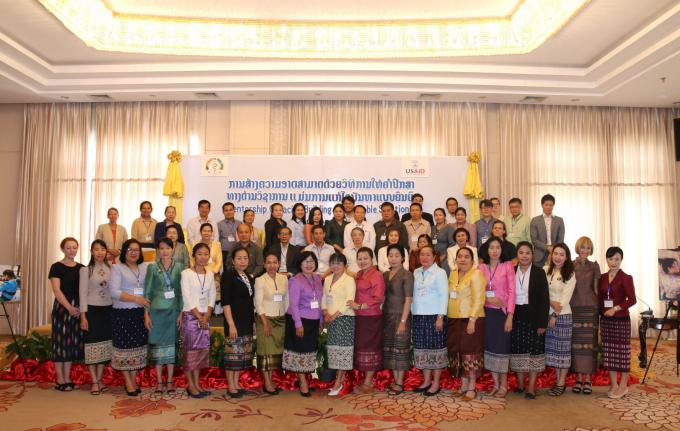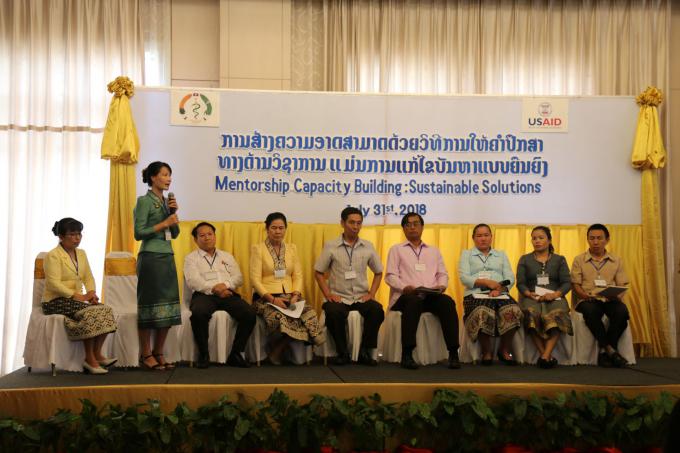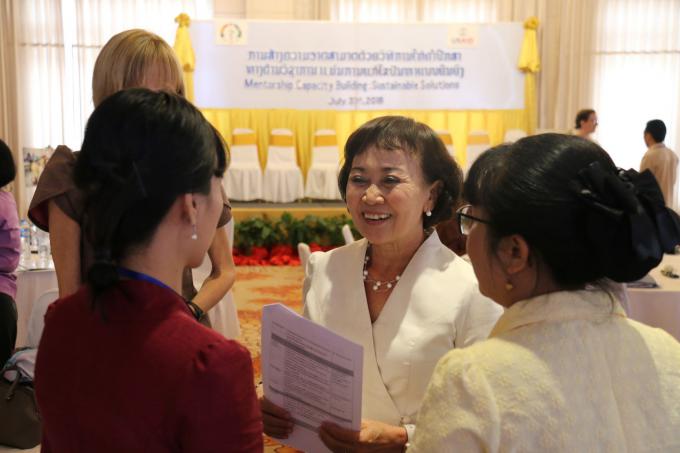Mentorship Capacity Building: Sustainable Solutions
Officials from the Ministry of Health, central hospital managers, Paediatric and OB/GYN associations, WHO, UNFPA, UNICEF and NGO partners together with provincial and district leadership and maternal/newborn health care providers from Luang Prabang and Sayaboury met on 31 July 2018 to exchange experience and share learning from the mentorship approach.
The meeting was chaired by Dr Boukhan Phakhounthong Deputy Director of the Department of Health Care and Rehabilitation and facilitated by Dr Sommana Rattana Director of Management and Dr Duangphone Soulivong Technical officer for maternal and child health and nutrition in the Department of Health Care and Rehabilitation. Key note speeches were given by Dr Alongkone Phengsavan Deputy Director of the faculty of medicine in the University of Health Sciences, Dr Shogo Kubotas Medical Officer WHO Reproductive, Maternal, Newborn, Child and Adolescent Health programme and Luang Prabang and Sayaboury mentors, provincial and district leadership and hospital directors.
Mentorship is a promising on the job peer-learning and skills building approach to strengthen the skills and confidence of maternal and new-born health care providers for care of the mother during labour and the safe birth of her baby. The mentorship approach was designed and implemented with technical support from the Maternal and Child Survival Program funded by USAID. The mentor approach commenced in Sayaboury and Luang Prabang provinces in 2016 and is integrated within the Save the Children Primary Health Care program. Senior health staff at provincial and district hospitals have been trained as mentors and provide ongoing peer to peer skills building as part of their daily work. In 2017, the approach expanded to include health center midwives.
The aim of the meeting was to discuss effective and sustainable health provider capacity building methods, to inform the development of feasible professional development approaches in Lao. The overall aim is to meet the objectives of the national Reproductive, Maternal, Newborn, Child Health Strategy 2016-2025, reduce maternal and newborn mortality and improve the quality of care for mothers and newborns.



 Laos
Laos 
